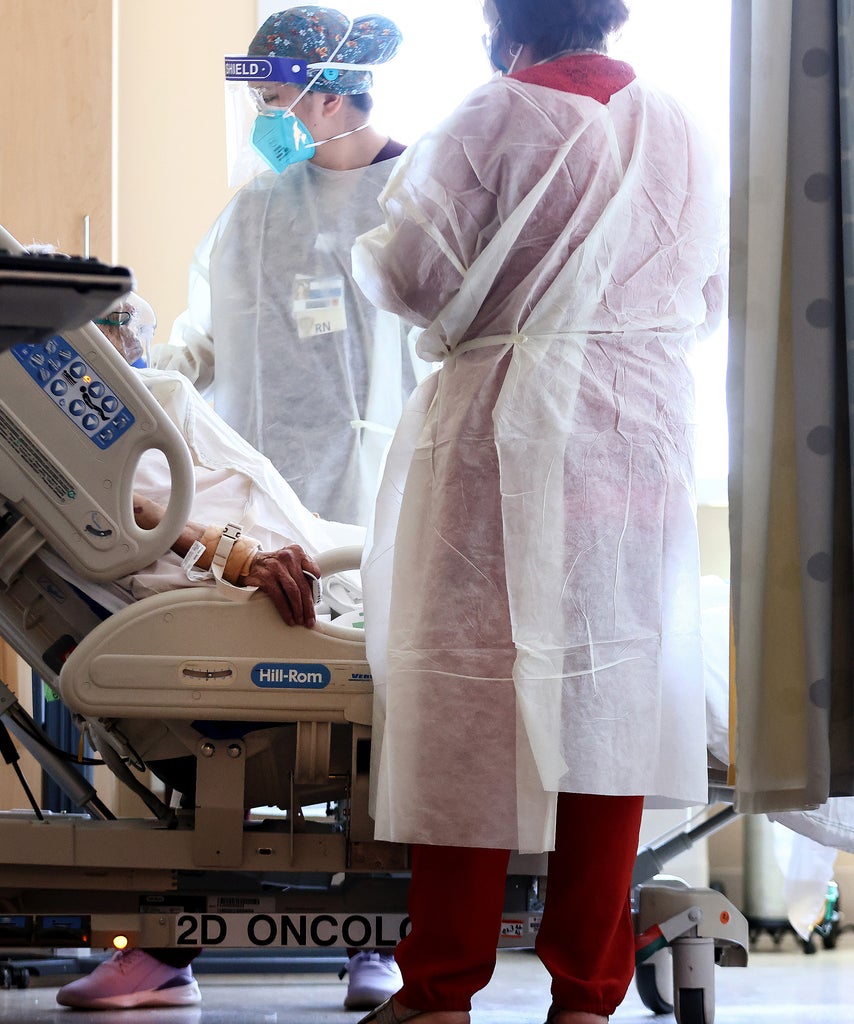
Amid alarming COVID-19 case numbers and the threat of the highly contagious Delta variant, states and cities across the U.S. are implementing vaccine mandates. Leading infectious disease expert Dr. Anthony Fauci recently spoke out in favor of vaccine requirements for teachers, and last week, New York Mayor Bill de Blasio announced that New Yorkers will have to show proof of vaccination in order to dine indoors, go to the gym, and attend shows and concerts. But the biggest and newest wave of vaccine mandates will require that health care workers in states including Oregon, New Jersey, and California are fully inoculated.
“This new safety measure is necessary to stop Delta from causing severe illness among our first line of defense: our doctors, nurses, medical students, and frontline health care workers,” wrote Oregon Governor Kate Brown in an August 4 statement. “Protecting our frontline health care workers through vaccination will also enhance the safety of the patients in their care.”
California’s similar mandate, which went into effect on Thursday, will apply to all paid and unpaid health care workers, including those who work at doctor’s offices, clinics, and nursing homes. Workers can request a medical or religious exemption, but in these cases, they’ll have to undergo regular COVID testing.
“Increasing numbers of health care workers are among the new positive cases, despite vaccinations being prioritized for this group when vaccines initially became available,” wrote Tomás J. Aragón, California’s Public Health Officer and Director.
According to Aragón, several recent outbreaks in hospitals and other health care settings have been traced back to unvaccinated employees. And as Brown and Aragón both noted, health care workers aren’t just exposed to COVID on a frequent basis — they’re also exposed to the most at-risk groups, including older, disabled, and immunocompromised individuals.
Instructing these workers to get the vaccine should be a no-brainer, and it also shouldn’t cause shock, pushback, or protest. After all, frontline health care workers — who have seen COVID up close — should know better than anyone that this virus is extremely infectious, devastating, and life-threatening. But there’s still rampant vaccine hesitancy, even within the medical community.
A recent WebMD and Medscape Medical News analysis revealed that one in four hospital workers who regularly come in contact with patients were still unvaccinated by the end of May. Some Florida hospitals had more unvaccinated employees than vaccinated ones, the same study says. And back in December, a Kaiser Family Foundation study showed that 29% of health care workers were wary of the vaccine, compared to 27% of all Americans.
Some of these workers are more likely to refuse the vaccine than others. One University of Michigan report showed that nurses (and health care employees who don’t interact with patients, like those in foodservice and security) were generally more skeptical than physicians, nurse practitioners, nurse midwives, and physician assistants. Nursing home staffers also have notably low vaccination rates, according to the Centers for Disease Control and Prevention.
“The knowledge base of a physician or a nurse working in the hospital is different to the knowledge base of a nurse’s aide, for example, or someone working in a nursing home,” Dr. Georges Benjamin, executive director of the American Public Health Association, told Insider.
In other words, nursing home employees have seen older residents suffer from and die of COVID; hospital workers have seen the virus affect everyone. Plus, Benjamin added, “A lot of our nursing homes are staffed with a larger degree of people who have less professional training… Not that they’re not professionals, but they have less professional training than the nurses in the hospitals.”
The mandates have been met with backlash. In June, Houston Methodist Hospital became one of the first medical establishments to impose a vaccine requirement — as a result, around 150 employees were fired or quit. (They filed a lawsuit; it was swiftly dismissed.) Other states, including California, have seen hundreds of health care workers take to the streets to protest vaccine mandates. “I’ve risked my life for people that have had COVID over the last 18 months,” one Orange County man told KTLA. “I’ve put up a fight for them and I don’t have any desire to force anything on anybody else.”
But vaccine requirements don’t just help workers and patients stay safe — they also set a precedent. As Yale Institute for Global Health director Saad B. Omer told The New York Times, these measures “establish a social norm and say it’s an institutional priority.” And with new cases in the U.S. rising to around 160,000 a day, it’s beyond time to make COVID an institutional priority.
Like what you see? How about some more R29 goodness, right here?
Airlines Are Not Going To Have Vaccine Mandates
When Will The FDA Approve COVID Vaccines?
Here's How To Show Proof Of Vaccination
from Refinery29 https://ift.tt/3m9mW1J
via IFTTT
